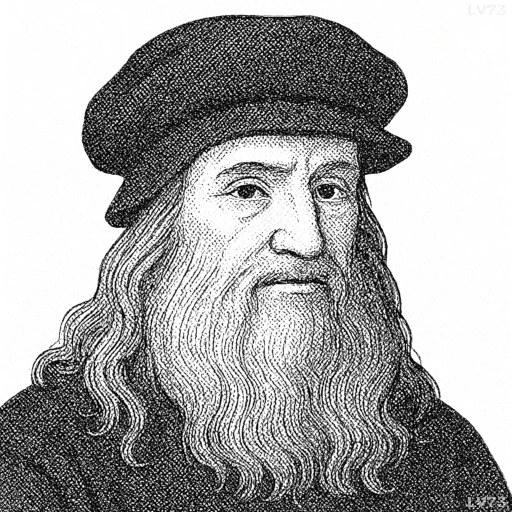“All knowledge which ends in words will die as quickly as it came to life, with the exception of the written word: which is its mechanical part.”

- April 15, 1452 – May 2, 1519
- Italian
- A versatile man (painter, sculptor, architect, inventor, scientist, etc.)
table of contents
Quote
“All knowledge which ends in words will die as quickly as it came to life, with the exception of the written word: which is its mechanical part.”
Explanation
In this quote, Leonardo da Vinci suggests that knowledge that exists only in spoken or unrecorded form is fleeting and temporary, while the written word has a unique power to preserve knowledge for future generations. Da Vinci acknowledges that oral traditions or conversations may convey ideas, but without being written down, they are easily lost or forgotten. The written word, however, serves as a mechanical part—a tangible, lasting record of knowledge that can endure across time. By recording knowledge in writing, it becomes immortalized, allowing future generations to access and build upon it.
Historically, this quote reflects the Renaissance’s emphasis on the preservation of knowledge. During this time, thinkers like Da Vinci were acutely aware of the power of written works to preserve and disseminate ideas. The Renaissance was a time of rediscovery of classical texts, many of which had been preserved only through writing. For Da Vinci, writing was not just a way to communicate ideas but also a way to safeguard knowledge, ensuring its longevity.
In modern terms, this quote speaks to the enduring value of written records in our world today. While digital communication and oral traditions still play important roles, the written word—whether in books, articles, or electronic records—remains the foundation for preserving and transmitting knowledge. This is particularly important in the fields of science, literature, and history, where written records allow us to document discoveries and thoughts that can be revisited and built upon by future generations. Da Vinci’s insight emphasizes the power of the written word as a tool for immortalizing knowledge and ensuring its continued growth.
Would you like to share your impressions or related stories about this quote in the comments section?





